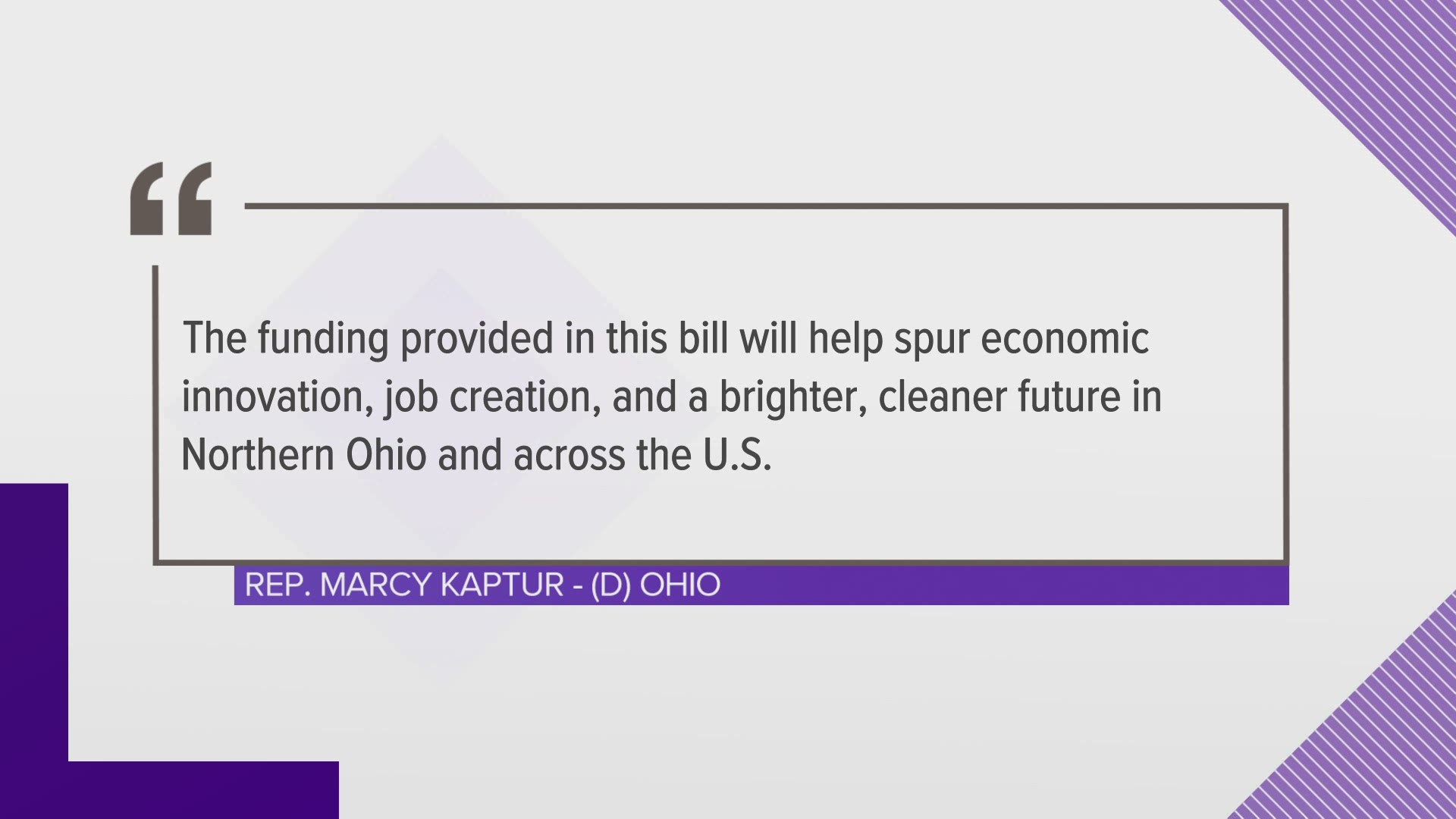Legislation dedicating over $12 billion to clean energy, introduced by Representative Marcy Kaptur, has cleared Congress as part of the COVID-19 relief bill.
The 2021 Energy Water and Development Appropriations legislation sits at page 417 of the Consolidated Appropriations Act, 2021 – the bill better known for its inclusion of a provision for another round of COVID-19 relief.
Kaptur serves as Chairwoman of the House Appropriations Subcommittee on Energy and Water Development and Related Agencies. Kaptur’s legislation provides funding for several regional priorities for northern Ohio and Great Lakes initiatives. The legislation also adds funding for the Department of Energy, U.S. Army Corps of Engineers, Department of the Interior programs and other related agencies.
“The 2021 Energy and Water Development Appropriations bill captures the American spirit of ingenuity and independence,” said Kaptur in a press release following the passage of the bill. “It provides the foundation of critical investments to combat climate change and will be the most important climate change legislation passed this year. In a year unlike any other, ensuring Northern Ohio communities receive the critical energy research and water infrastructure support they need is absolutely imperative. The funding provided in this bill will help spur economic innovation, job creation, and a brighter, cleaner future in Northern Ohio and across the U.S.”
A portion of the bill includes $4 million in funding for the Army Corps of Engineers to research and develop a plan to combat harmful algal blooms, a known problem in northern Ohio and Lake Erie.
A section on energy efficiency and renewable energy offers a combined total of $40 million funding that a consortium involving the University of Toledo and First Solar may compete for. Two other portions involve continued allocation of funds to a partnership involving Davis Besse Nuclear Power Station.
Other energy projects and Coastal Ecosystem Research involving the University of Toledo will receive funding as well.
On a national front, many parts of the bill will promote clean energy and solar initiatives for now and into the future.
On Dec. 21, the bill with Kaptur’s legislation passed Congress and now heads for President Trump’s desk, where it will either be signed into law or vetoed.
If vetoed by Trump, Congress is prepared to vote on whether to overrule the President’s veto. A two-thirds majority by both the Senate and the House would be necessary.
A full summary of funding from Kaptur’s portion of the bill can be read at her website.

